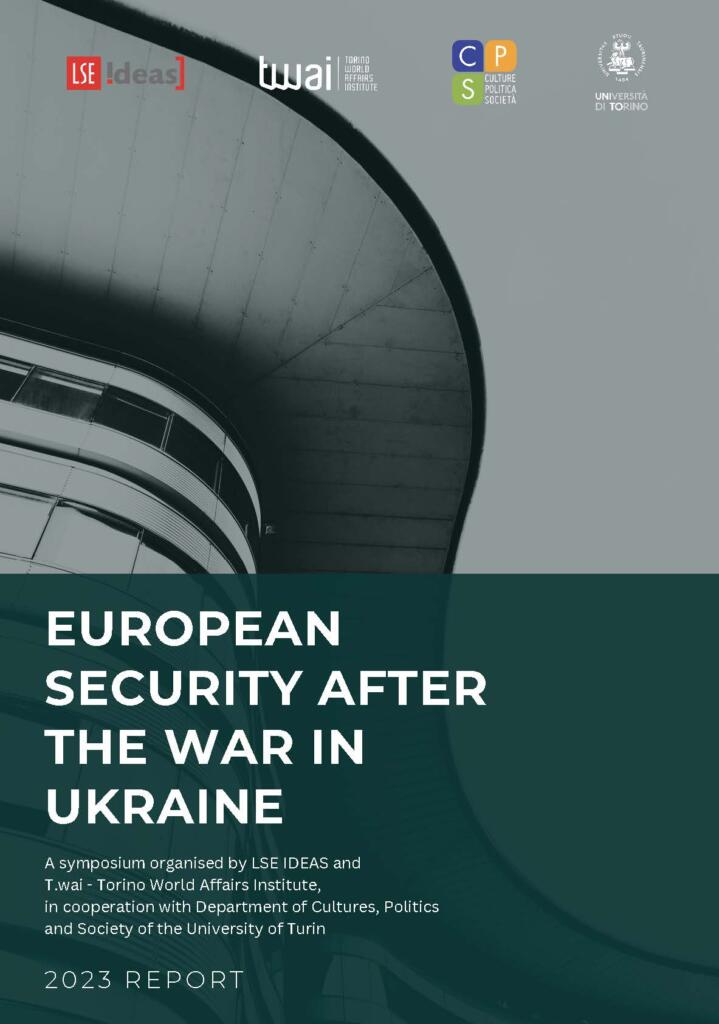
On 3 May 2023, the London School of Economics’ think tank LSE IDEAS, the Turin-based think tank T.wai – Torino World Affairs Institute, and the Department of Cultures, Politics and Society of the University of Turin held their third joint international symposium.
Titled ‘European Security after the War in Ukraine’, the symposium was organized around three thematic panels:
As pointed out by Stefano Ruzza in his opening remarks, the war in Ukraine has sparked lively debates about international relations and the future of the international order. While posing a challenge in itself, the return of war in Europe has also shed light on broader, and perhaps deeper, issues affecting European security.
The primary concern is, of course, the failure of conflict prevention. While in the past Europe has demonstrated its relative capacity to deter conflict, the war in Ukraine has prompted reflections on future prevention strategies. At the same time, the events in Eastern Europe have revealed technical deficiencies within European and Western defence industries, which are not able to manufacture enough ammunitions to sustain conventional confrontations at the scale we have been witnessing with the Russian offensive in Ukraine.
Broadening the perspectives beyond technical aspects, the events in Eastern Europe have brought to the forefront a series of non-traditional security concerns. Among these, energy security and the need to diversify fossil fuel provisions amid a green transition have certainly played a paramount role. At the same time, incidents like those related to the Nord Stream pipelines underscore the interconnectedness of energy security with the protection of critical infrastructure, including undersea cables crucial to the global IT industry. Food security has also become a key issue due to the war’s impact on wheat exports, affecting the Global South and potentially leading to increased migratory flows. Economic security is also at stake, as global value chains and trade face challenges in a world of sanctions and diminished trust.
To address this wide array of issues, Europe must deliberate on domestic and international institutional considerations. Domestically, the debate revolves around the effectiveness of different political regimes in providing security. The first panel delved into the relationship between democracies and authoritarian regimes, exploring the relative strengths and shortcomings associated with these governance systems and pondering the possibility of peaceful coexistence. At the international level, institutions such as the EU and NATO are increasingly under scrutiny, especially vis-à-vis the increasingly assertive role of China and Russia in the global arena, as discussed by the speakers of the second and third panels respectively.
The 2024 LSE IDEAS – T.wai Symposium “CTRL+Power: The (Geo)politics of Digital Authoritarianism” is held at the University of Turin on May 6-7.
Download

Copyright © 2024. Torino World Affairs Institute All rights reserved
